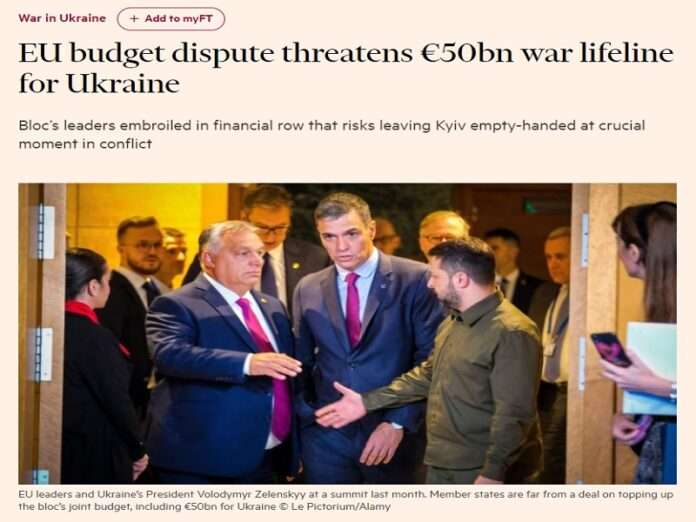What had previously been unthinkable just half a year ago is now a credible scenario after the Financial Times just warned that the EU might cut off the purse strings to Ukraine. Political gridlock has impeded consensual agreement on the bloc’s next budget, thus putting funding for that former Soviet Republic at risk. Moreover, some member states like Hungary have threatened to block Ukraine’s membership bid, while a recent German Constitutional Court ruling abruptly curbed Berlin’s borrowing plans.
It’s therefore not just the military and political phases of the Ukrainian Conflict that are finally winding down as a result of summer’s failed counteroffensive and the impact that it had on reshaping Western policymakers’ perceptions, but also the financial one too as proven by the Financial Times’ latest report. While the US’ funding of this proxy war was already in doubt since fall, there was still hope among Ukraine’s supporters abroad that the EU would step up to take on a greater burden in response.
All such expectations have suddenly been dashed as explained, which combines with the winding down of the two previously mentioned phases to create a full-blown strategic crisis for that country. Military aid is dwindling, political commitment to the cause is waning, and financing is no longer promised. If at least the last of these three was secured, then the growing partisan divisions inside Ukraine could have theoretically remained manageable, but they’ll likely soon spiral now that even this is uncertain.
After all, the state relies on foreign funding to function, so it’ll have to curtail social services and possibly even force state employees into working without wages on pain of imprisonment. The already difficult situation for average folks could become much worse while tensions between Zelensky and Commander-in-Chief Zaluzhny might explode if their supporters try pinning the blame on the other figure. Simply put, all preexisting fault lines inside Ukraine could further exacerbate at the same time, thus leading to chaos.
To be clear, some funding from the West will probably be approved, though whatever Ukraine receives will almost certainly be insufficient for retaining the already fraught financial status quo. Some cuts will inevitably ensue, which could lead to even more anti-government sentiment, including that which is arguably boiling among Zaluzhny-aligned elements within the armed forces. The “Maidan 3” scenario that Zelensky is so worried about could therefore easily become a fait accompli under those conditions.
